As the name suggests, Whinos, too is the sequel to a culinary hit. A spin-off of the popular bistro Whinos Bar & Kitchen, Whinos, too boasts exuberant food and wine, and a space that is felicitously ample, incorporating a cozy, hip design. My dinning companions and I were delighted with our visit on a recent Saturday night — although a mishap that occurred at the end of the meal put a slight damper on the visit.
When we arrived early in the evening for our reservation — almost an imperative if you dine there on the weekend — the place was already filled with young diners clinking wine glasses and enjoying hearty food. With subdued lighting, a warm, wood entrance and wrought iron signage, it gives a hip impression to passersby. Inside, vintage furniture blends harmoniously with brick walls painted white and paintings to create a relaxing ambience which is accentuated by jazz music. A finely stocked glass cellar and a cabinet filled with cheeses heralded a delightful evening.
For those looking for something to nibble while indulging in a few bottles of wine, the bistro’s menu, stylishly made out of cardboard wine boxes, contains a solid collection of cold cuts and hard, semi-hard, soft and blue cheese from Holland, Italy, Switzerland, France, Spain and the UK, as well as a variety of finger food, such as homemade chili cheese nachos (NT$250) and herb roasted chicken drumettes (NT$280).
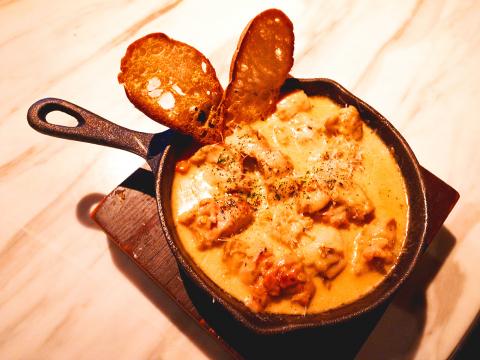
Photo: Ho Yi, Taipei Times
Serious diners have plenty to choose from. The mini foie gras cheeseburgers (NT$650) were regretfully sold out.
The four of us started our meal with the Westland old Amsterdam (NT$200) and prosciutto (NT$280). For big groups, the ham and cheese platter (NT$780) is a popular choice that comes with a selection of three cheeses and two cold cuts with fresh fruit, honey, jam, nuts, pickles and bread.
The mussels in white wine and garlic sauce (NT$320) was surprisingly spicy, while the fried pocket stuffed with chorizo, spinach and egg (NT$260) was satisfying.
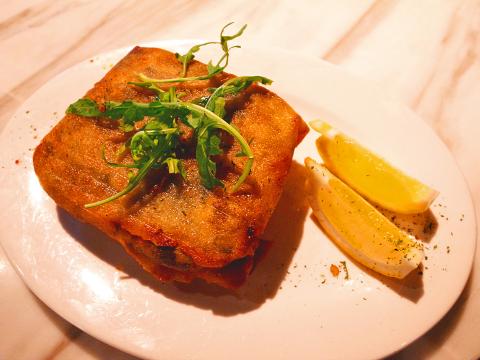
Photo: Ho Yi, Taipei Times
Touted as a must-try delicacy by food bloggers, the baked uni sandwich (NT$650) didn’t disappoint. The spread of the rich, orange gonads of sea urchins melted in the mouth, leaving a lingering briny taste.
For our main courses, while the pan-seared pork chop with cabbage and mushrooms (NT$450) was adequate but didn’t impress, the tequila lemon cream chicken (NT$380) was so luscious that we ordered two baskets of assorted bread (NT$90) to mop up all the creamy sauce from the plate.
The bistro’s cellar is stocked with white, red and sparkling wine and champagne from France, Italy, Germany, Spain, New Zealand, Argentina and the US (NT$1,300 to NT$4,800). There is also a selection of beer, grappa, sherry, whisky and other spirits (NT$220 to NT$500 by glass, NT$2,500 to NT$7,000 by bottle).
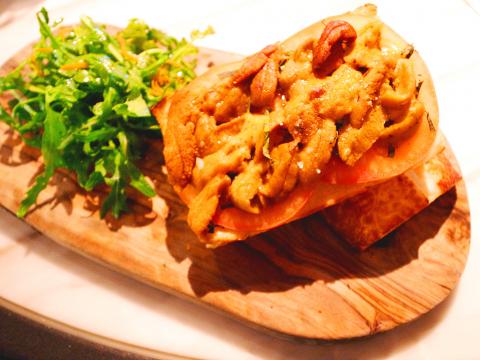
Photo: Ho Yi, Taipei Times
But wine aficionados might want to stay sober when asking for the check — a careless young waiter had put a bottle of wine we didn’t order on our bill.
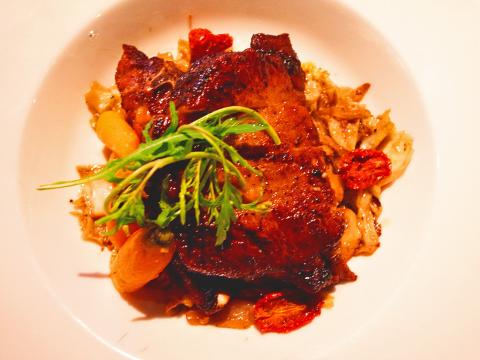
Photo: Ho Yi, Taipei Times
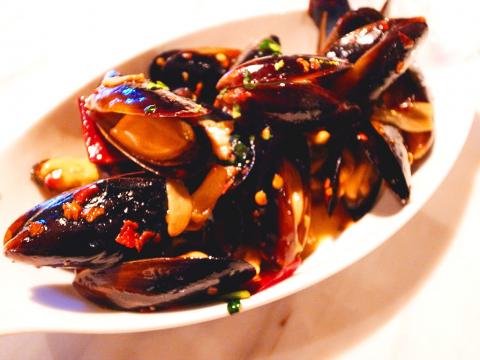
Photo: Ho Yi, Taipei Times
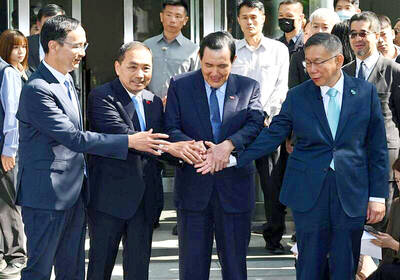
Has the Taiwan People’s Party (TPP) changed under the leadership of Huang Kuo-chang (黃國昌)? In tone and messaging, it obviously has, but this is largely driven by events over the past year. How much is surface noise, and how much is substance? How differently party founder Ko Wen-je (柯文哲) would have handled these events is impossible to determine because the biggest event was Ko’s own arrest on multiple corruption charges and being jailed incommunicado. To understand the similarities and differences that may be evolving in the Huang era, we must first understand Ko’s TPP. ELECTORAL STRATEGY The party’s strategy under Ko was

It’s Aug. 8, Father’s Day in Taiwan. I asked a Chinese chatbot a simple question: “How is Father’s Day celebrated in Taiwan and China?” The answer was as ideological as it was unexpected. The AI said Taiwan is “a region” (地區) and “a province of China” (中國的省份). It then adopted the collective pronoun “we” to praise the holiday in the voice of the “Chinese government,” saying Father’s Day aligns with “core socialist values” of the “Chinese nation.” The chatbot was DeepSeek, the fastest growing app ever to reach 100 million users (in seven days!) and one of the world’s most advanced and
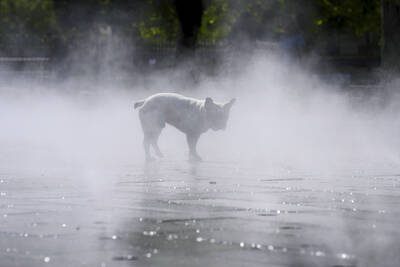
It turns out many Americans aren’t great at identifying which personal decisions contribute most to climate change. A study recently published by the National Academy of Sciences found that when asked to rank actions, such as swapping a car that uses gasoline for an electric one, carpooling or reducing food waste, participants weren’t very accurate when assessing how much those actions contributed to climate change, which is caused mostly by the release of greenhouse gases that happen when fuels like gasoline, oil and coal are burned. “People over-assign impact to actually pretty low-impact actions such as recycling, and underestimate the actual carbon

An internal Meta Platforms document detailing policies on chatbot behavior has permitted the company’s artificial intelligence creations to “engage a child in conversations that are romantic or sensual,” generate false medical information and help users argue that Black people are “dumber than white people.” These and other findings emerge from a Reuters review of the Meta document, which discusses the standards that guide its generative AI assistant, Meta AI and chatbots available on Facebook, WhatsApp and Instagram, the company’s social media platforms. Meta confirmed the document’s authenticity, but said that after receiving questions earlier this month, the company removed portions which stated